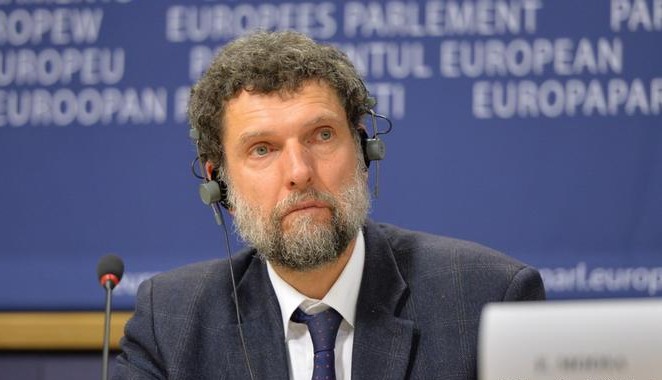The Committee of Ministers, the executive organ of the Council of Europe (CoE), on Tuesday decided to take action against Turkey for failing to release prominent businessman and philanthropist Osman Kavala despite a European Court of Human Rights (ECtHR) ruling and ordered that the case be submitted to the ECtHR for review, officially beginning an infringement procedure against Turkey, Turkish media reported.
Kavala, 64, has not been convicted of a crime but has been incarcerated for more than four years, prompting claims of political persecution amid international criticism of Ankara’s crackdown on opponents.
The ECtHR will establish whether Turkey has violated the European Convention on Human Rights (ECHR). If the Strasbourg court rules that Turkey has not fulfilled its obligations under the ECHR, then the Committee of Ministers will decide on the sanctions to be imposed on the country.
The council’s infringement procedure against Turkey could last months and possibly years.
Turkey could ultimately lose its voting rights or even be removed from the pan-European rights body it first joined in 1950.
The Turkish Foreign Ministry issued a statement, describing the committee’s decision as an “intervention against the independent judicial process” in Turkey.
“The Committee of Ministers of the Council of Europe today (February 2) adopted an interim decision regarding the referral of the Kavala case to the ECHR by a majority of votes. Thus, the Committee of Ministers of the Council of Europe continued its approach of interfering with the ongoing independent judicial process in our country and violated the principle of respect for the judicial process,” the ministry said in a written statement.
A Turkish court on Jan. 17 extended Kavala’s detention, ignoring a deadline from the CoE’s human rights body to release him.
Kavala is accused of funding nationwide anti-government protests in 2013 and helping orchestrate a failed coup in 2016. He denies the charges, which carry a life sentence without the chance of parole.
In October 2021 the ambassadors of 10 countries, including the US, Germany and France, demanded Kavala’s immediate release in line with a 2019 ECtHR ruling.
Turkish President Recep Tayyip Erdoğan threatened to expel the envoys before backing down.
Turkey refuses to release Kavala despite a binding judgment of the ECtHR in December 2019 finding that his detention was in pursuance of an “ulterior motive,” that of silencing him as a human rights defender.
The philanthropist has become a symbol to his supporters of the sweeping crackdown Erdoğan unleashed after the 2016 coup bid.
The next hearing in Kavala’s case in İstanbul is scheduled for Feb. 21.

